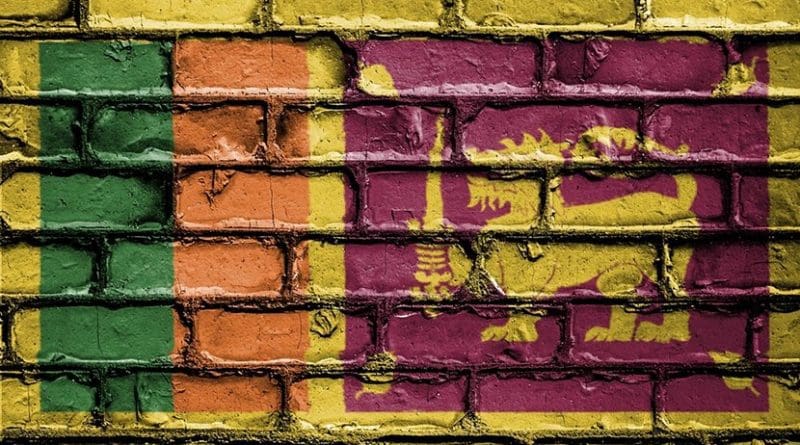Sri Lanka: Reflections From Jaffna And Inspirations From Abroad – OpEd
By Salma Yusuf
On the 5th of March 2015, nearly 100 women’s rights activists from different regions of Sri Lanka came together in Jaffna to celebrate International Women’s Day. The event was aimed at celebrating Sri Lankan women and giving them an opportunity to meet, greet and build life-long friendships.
The event brought together women from region including Matara, Kandy, Kegalle, Galle, Mannar, Killinochchi, Jaffna, Batticaloa, Vavuniya and Colombo to share their experiences and aspirations.
The outcome document of this historic event is what has now come to be known as the Jaffna Memorandum. The Jaffna Memorandum captures and articulates the key deliberations of the women around four themes: first, Women’s Participation in Politics and Public Life; second, Women’s Economic Empowerment; third, Gender-based Violence; and Reconciliation and Transitional Justice.
The participants who gathered in Jaffna agreed to send this memorandum to the Women’s Parliamentary Caucus in Colombo for immediate action. Accordingly, the Jaffna Memorandum has now been presented to the Women’s Parliamentary Caucus in Colombo.
Against this backdrop, I would like to propose that we continue the conversation that the women from the grassroots began in Jaffna. I would like this conversation to be framed within a new concept and paradigm for the women’s rights movement in Sri Lanka – a paradigm and concept that we can call Sri Lankan Feminism.
Now, what would this concept of Sri Lankan Feminism be and look like?
Sri Lankan Feminism would be our own brand of feminism that unites Sri Lankan women, irrespective of their religion, ethnic or cultural backgrounds. I propose that this brand of Sri Lankan Feminism to be based upon our common concerns, our related aspirations and our shared destinies as Sri Lankan women. It is a type of feminism we carve out ourselves and one that can unite us across previously divisive lines of ethnicity or culture.
The importance of such events – that bring women together from different contexts – is that it shows us that while our experiences us women vary with our ethnic, religious, cultural and social realities, there is more that unites us than divides us. This then is a compelling reason for women to come together and work together.
It was also striking how the women who came together in Jaffna spoke with conviction, confidence and resolve beyond gender issues only and into the realm of national governance issues. This then must also be a hallmark of the notion of Sri Lankan Feminism – that is, speaking beyond gender issues only and on larger national issues.
In this idea of Sri Lankan Feminism, we must also espouse the value of women collaborating to improve each other’s lives across dividing lines and on common issues of mutual concern which in turn can build bonds and foster individual and national reconciliation at the familial and societal levels.
A potential concept of Sri Lankan Feminism must also take inspiration from women’s movements and successes in other reconciliation and peace-building context around the world. For instance, in Sierra Leone, in 1995, the women’s peace campaign put the issue of a negotiated settlement in the public domain in a non-confrontational manner, combining non-threatening events to mobilize support with more direct measures. As a result, a negotiated settlement became a respectable option for both parties to the conflict. This is an option that Sri Lankan too can consider given the current and ensuing challenges of forging a negotiated political settlement to the long-standing conflict in the country.
Women’s groups have also been known to broaden the range of substantive issues on the table, promoting not just women’s rights but also social justice. For instance, during negotiations in the Belfast Agreement, the Northern Ireland’s Women Coalition ensured that victim’s rights and reconciliation was achieved.
Women activists also promote a vision of peace that goes beyond the negotiating table. The peace conferences in Somaliland in 1993 and 1996 would not have taken place without the collective lobbying of elders by women who urged them to intervene and end conflict.
Women in Northern Uganda worked collectively to revive cultural institutions and prepare the community for reconciliation through peace education and story-telling.
Finally, I would like to call on all of us to acknowledge and realize, once and for all, that women are invaluable agents for building bridges across communities and societies.
Therefore, I conclude with the repeated call to all of us to work together based on our common concerns and shared destinies, in the spirit of a new paradigm of women’s awakening – a Sri Lankan Feminism.


I t helps when the women in the South raise their voice for the women in the North who have been under hyper-militarisation and PsyOps for more than 10yrs: without political solution and economic development after the 30-yr war(created by 30yrs of political and economic oppression since independence) was over.